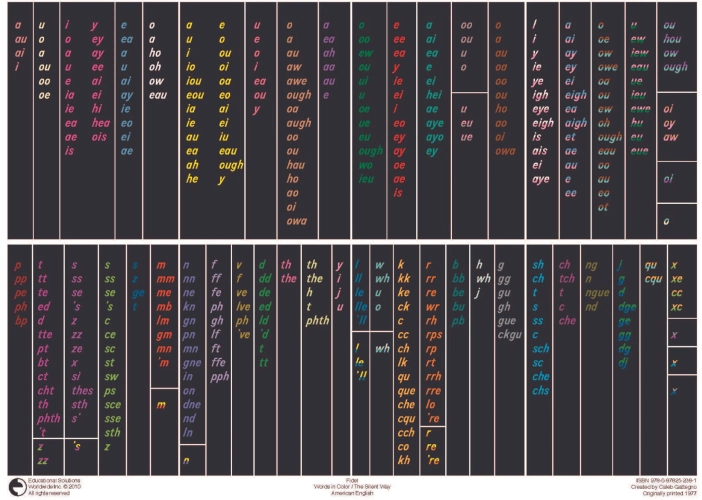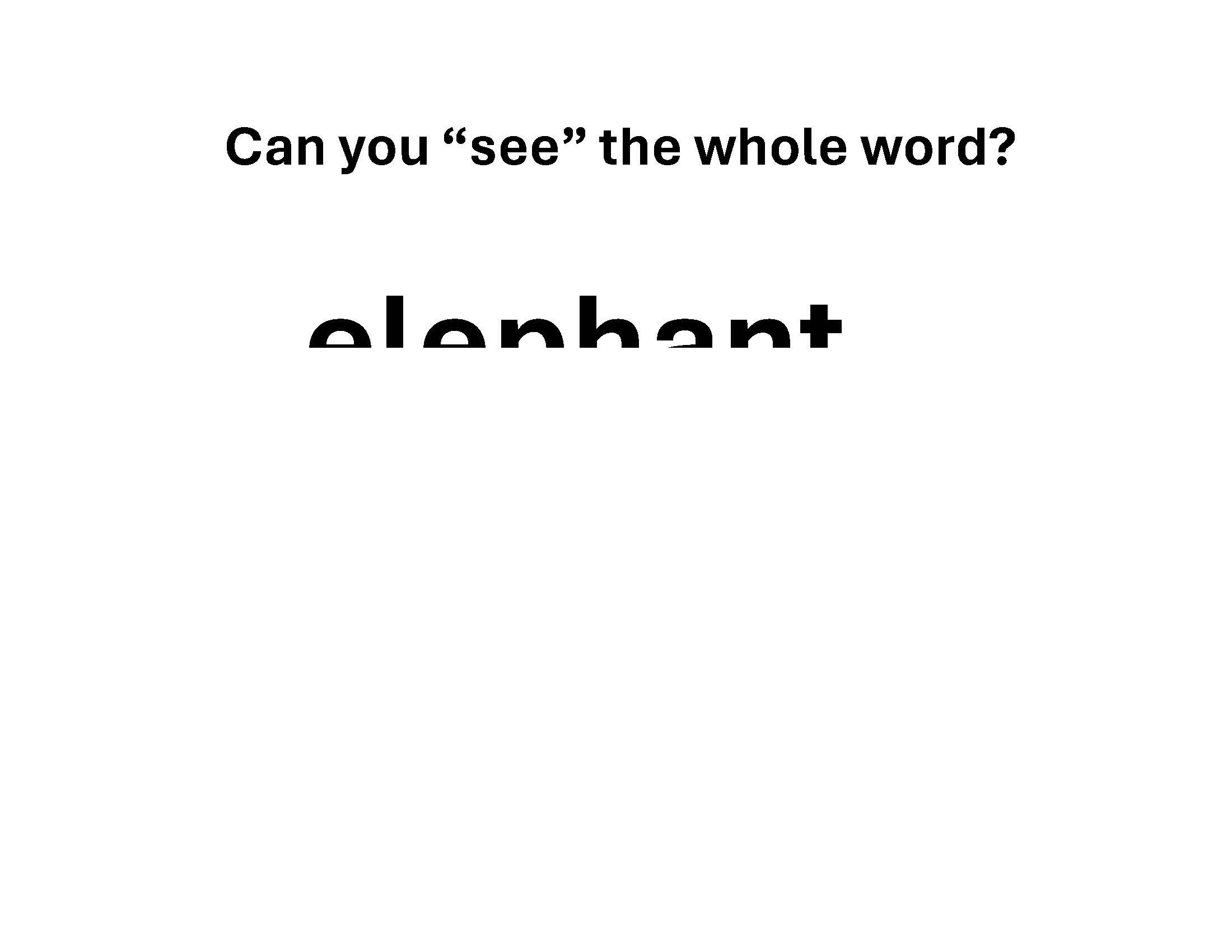At one point in my career as a tutor, I asked myself the question, “How do I know how to spell a word?” While that question came amongst others, such as “What do I do with my eyes when I read?” or “How do I use language to comprehend written sentences?” it was the one that provided the lead to developing reliable criteria when working with students on the activity of spelling, per se.
If I were to improve in my tutoring of students, such a broad question had to be replaced by a succession of others before I was able to improve as a spelling tutor, for example:
- Do I hear the sounds of a word?
- Do I “see” words in my mind?
- Do I see words all at once or parts of them as I scan them?
- Does this vary depending on the word?
- Do I sometimes see first the letters on the left or the ones on the right or in the middle?
- Do I hear all of the sounds at once or in succession?
- Why do I spell some words correctly all of the time and others always incorrectly?
- Which words “tell me” how to spell them or other words?
- How many ways are there to sound the shape, i?
Such questions suggested a series of exercises that have brought awareness of how one functions as a speller in English, including:
- Choose a long word and spell it backwards as quickly as you can.
- Have someone write the top half of a word and try to guess what the word is.
- Choose a word and find how many sounds it contains.
- Find words whose sounds you can utter in reverse and others where you cannot do that.
- Find words whose sounds uttered in reverse produce another English word.
- Think of a word and visualize at the same time its mirror image — above it, below it or next to it.
- Write down any word and then below it all of the others that are suggested by its look; by its sounds.
- Find ten different ways of representing, in written English, the final sound in the word, “glue”; are there more than ten; if so, how many?
I realized that, not only would engaging in such exercises make me and other tutors into better teachers of spelling, but that they would serve to force awareness in those we tutor of the powers of their minds available to them for the activity of spelling. Thus, they would realize that spelling is a functioning of theirs, something they own, like knowing how to ride a bicycle or how to play checkers, and not a seemingly endless list of words to memorize, repeat and often forget.
I have used exercises like those above over a period of many years, with people I have tutored, ranging in age from five to over sixty. Usually, I have been fortunate to have at hand two very useful instruments: a pointer and a set of eight charts, called the Fidel or Phonic Code, which displays nearly all of the approximately 400 signs of the English language organized into columns according to the 40 or so sounds they represent (see below). Since these two devices together — where the pointer is moved by teacher or student from column to column and/or from spelling to spelling — allow one to create almost any English word, one can start from anywhere and go anywhere; hence one is freed to follow the needs of one’s students as they arise and to free them, if necessary, from whatever inhibits them. Furthermore, the Fidel is ideally suited to exercises that force awareness and provide facility in the two matters that make the spelling of English words difficult, as compared with most other languages, that is, the same sound may be represented by as many as 28 different spellings and the same spelling may be associated with as many as 11 different sounds.

Armed with criteria, exercises, materials and techniques that take into account what is definite — that English has so many sounds or so many spellings for those sounds and that humans have powers of the mind that are more reliable, more enriching than just memory alone — as well as what is indefinite — that I cannot predict what the people I tutor will say or do — I am eager to tutor them in spelling and remain confident of getting results with all students who come my way.
Theodore Swartz, Ph.D., Co-Founder & Co-Manager, Be Brilliant! Tutoring, LLC


